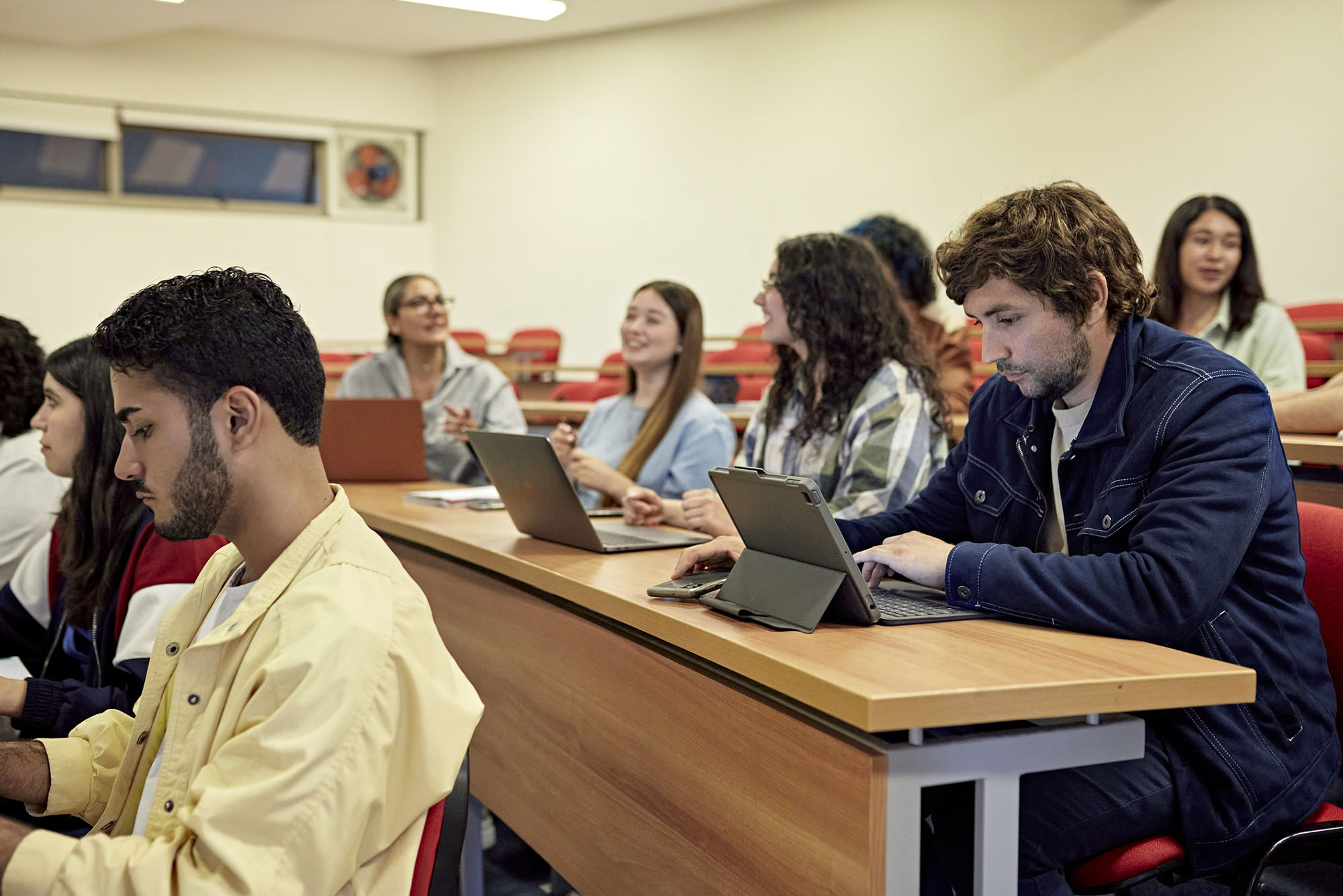Colleges Are Already Unequal—Will Ending Affirmative Action Make It Worse?
BU sociologist Jonathan Mijs writes that diversity on college campuses are crucial for shaping beliefs and learning about peers in a divided nation
Colleges that better reflect the diverse population of the US would have an impact on over 20 million students, says sociologist Jonathan Mijs. Photo by xavierarnau/iStock
In recent research, I set out to study how college students in the US—growing up in a country defined by inequality and segregation—learn about their society. I traced beliefs about inequality in 10 cohorts of US college students between 1998 and 2010, totaling 141,597 students across 436 institutions. My findings suggest that the college context deeply shapes students’ understanding of structural inequality and racism.
Historically, colleges have had the mission to educate tomorrow’s leaders about their country’s past and present, the democratic process, and their part in it. They have the potential to broaden perspectives and increase intergroup understanding. Currently, however, a majority of students receive only limited exposure to socioeconomic and racial heterogeneity in the campus environment. As the Supreme Court ends race-conscious admissions, it’s important to consider the consequences for the civic role and equalizing promise of college.
Through recruitment and admission practices, colleges determine the exclusivity and diversity of the place where students learn important lessons about social and racial inequality in the US. In doing so, they shape the development of students’ beliefs about inequality, be it a meritocratic view of success as driven by hard work alone, or a more structural understanding of unequal opportunities as shaped by race and class.
I combined a survey taken before students start college, typically at freshman orientation, and an exit survey taken by those same students in the spring semester of senior year. To see why students change their beliefs in one or the other direction, I paid particular attention to students’ shared living arrangements with a roommate, which can provide a unique lens into the social and material conditions of another person’s life.
My research revealed that having a roommate from a different racial or ethnic group is associated with students developing a less meritocratic understanding of America. Black and Hispanic students, especially, lost faith in the American Dream, and Asian students came to see more racial inequality. Ironically, white students were less affected by their roommate than non-white students. This asymmetric impact of experiences with diversity may be illustrative of people’s higher attentiveness to personal disadvantages than those facing others. Let’s also acknowledge that what may constitute an eye-opening experience for some, can be a draining and psychologically costly confrontation for another.

Importantly, my findings show that the effect of having a roommate from a different race or ethnicity is strongest in places that lack socioeconomic and racial diversity, such as colleges with a majority white student body or schools where the lion’s share of students have college-educated parents. That is, diversity experiences matter most where they are least likely to happen.
Despite the potential for broadening perspectives, colleges reinforce inequality in two ways: credentials increase the economic gap between graduates and the 70 percent of Americans without a degree, and when colleges lack diversity, tomorrow’s educational elite learn to legitimize the growing gap as meritocratically deserved. In a country that is increasingly divided along racial and economic lines, adolescents who grow up encapsulated in privilege develop a naïve understanding of American meritocracy. For these students, the college experience undermines rather than serves the civic and integrative role of higher education.
More exposure to people of different walks of life creates conditions for students to develop an awareness of structural processes that shape inequality. Be it through purposeful roommate pairing, inclusive admission policies, or affirmative recruitment efforts, a college environment that better reflects our diverse population would impact the perspective of over 20 million students currently in college and, with it, public opinion and US politics.
Jonathan Mijs is an assistant professor of sociology at Boston University. His research focuses on the growing economic gap and why it has left many people unconcerned. His work has been published in Social Problems, Socio-Economic Review, Sociology of Education, Social Psychology Quarterly, and the Annual Review of Sociology, among other journals.
“Expert Take” is a research-led opinion page that provides commentaries from BU researchers on a variety of issues—local, national, or international—related to their work. Anyone interested in submitting a piece should contact thebrink@bu.edu. The Brink reserves the right to reject or edit submissions. The views expressed are solely those of the author and are not intended to represent the views of Boston University.


Comments & Discussion
Boston University moderates comments to facilitate an informed, substantive, civil conversation. Abusive, profane, self-promotional, misleading, incoherent or off-topic comments will be rejected. Moderators are staffed during regular business hours (EST) and can only accept comments written in English. Statistics or facts must include a citation or a link to the citation.